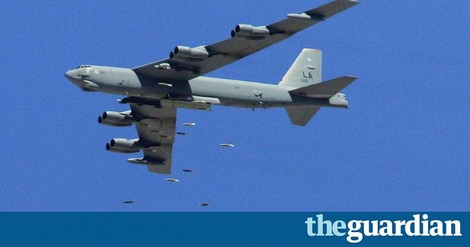Your podcast discovery platform
Curious minds select the most fascinating podcasts from around the world. Discover hand-piqd audio recommendations on your favorite topics.

piqer for: piqd Boom and bust Climate and Environment Global finds Globalization and politics Health and Sanity Technology and society Doing Good Deep Dives
Malia Politzer is the executive editor of piqd.com, and an award-winning long-form journalist based out of Spain. She specializes in reporting on migration, international development, human rights issues and investigative reporting.
Originally from California, she's lived in China, Spain, Mexico and India, and reported from various countries in Africa, Europe and the Middle East. Her primary beats relate to immigration, economics and international development. She has published articles in Huffington Post Highline, The Economist, The Wall Street Journal, Vogue India, Mint, Far Eastern Economic Review, Foreign Policy, Reason Magazine, and the Phoenix New Times. She is also a regular contributor to Devex.
Her Huffington Post Highline series, "The 21st Century Gold Rush" won awards from the National Association of Magazine Editors, Overseas Press Club, and American Society of Newspaper Editors. She's also won multiple awards for feature writing in India and the United States.
Her reporting has been supported by the Pulitzer Center on Crisis Reporting, The Institute For Current World Affairs, and the Global Migration Grant.
Degrees include a BA from Hampshire College and MS from Columbia University Graduate School of Journalism, where was a Stabile Fellow at the Center for Investigative Journalism.
As The Rules Making War Illegal Crumble, We Are In Trouble
In 1928, the nations of the world signed a pact that essentially outlawed war. This Guardian long-read is an exploration of why the Paris Peace Pact was so critical to limiting large-scale global conflicts; and also why we now find ourselves in danger of slipping back into that old world order.
Prior to that pact, war was seen as a morally viable way for states to uphold the law; a way to ensure that loans were repaid, property reclaimed, and criminals punished. In a world where war is legal, neutrality is virtually impossible: States that trade unequally with one side are accused of taking sides. Authors Hathaway and Shapiro argue that the old world order of legalized warfare is what allowed World War I to occur; resulting in millions of deaths.
Since then, many of our most prominent international organizations — starting with the Paris Peace Pact, signed by the league of nations, and later, the United Nations and the European Union — have formed directly and indirectly in the effort to stop world wars. While perhaps not entirely successful, these agreements have prevented a great deal of inter-state war and territorial conquest.
But the authors make a concise argument that we are now in danger of slipping even further back — as states (including most of the members of the security council) routinely violate international agreements on use of force. The stakes are high.
“It is tempting to resort to force to solve any given problem. It is tempting to see one’s own cause as sufficient justification for sacrificing a broader set of objectives. Indeed, it was precisely this logic that gave rise to the old world order and the horrors it unleashed. The further we get from that bloody system, the easier it is to forget that the world once looked very different — and much less pleasant. But when war is a tool of justice, only force determines what is just.”
